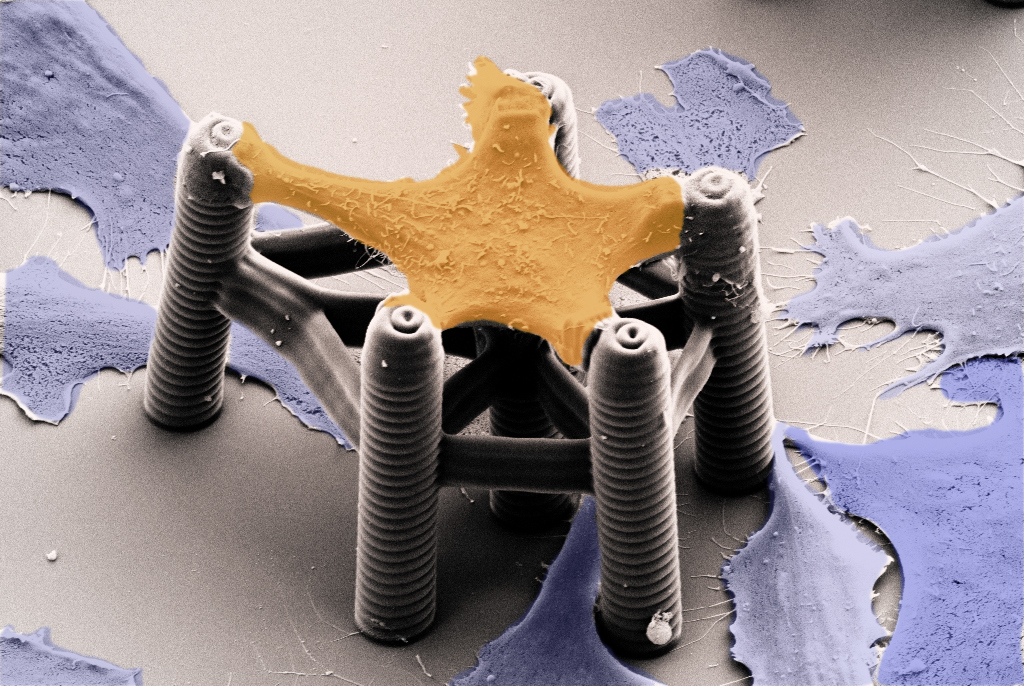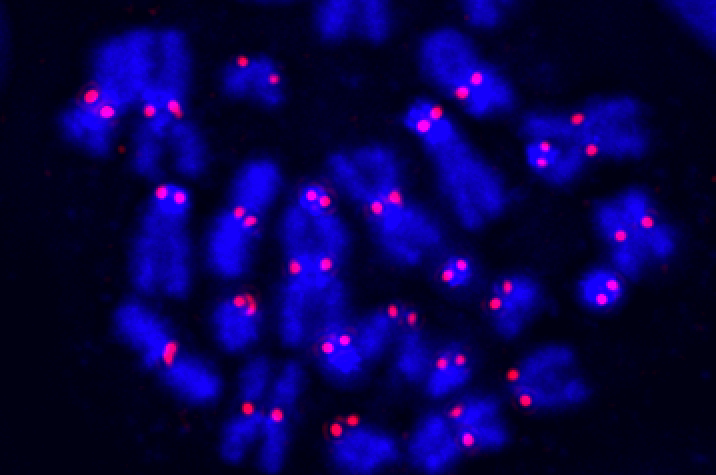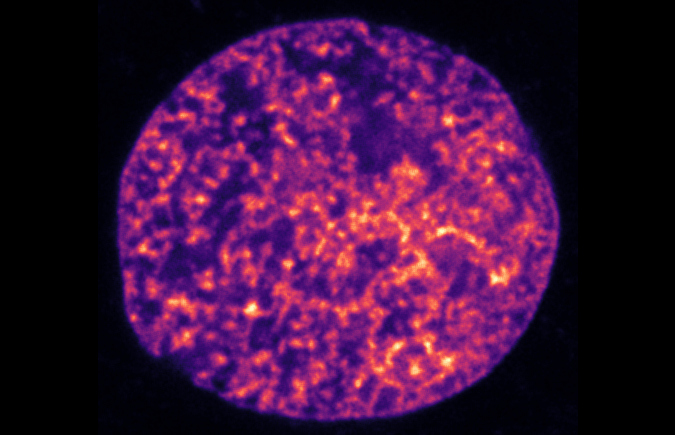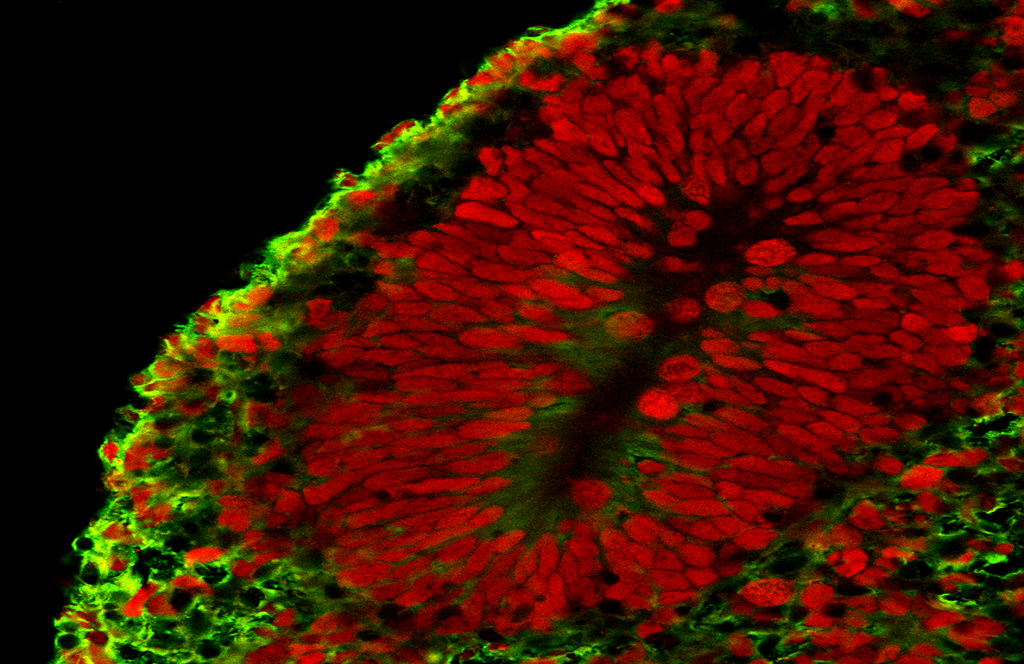
Cell and Neurobiology
The research projects in the Bastmeyer group focus on the molecular aspects of cell adhesion and cell differentiation and on questions concerning the development of the nervous system in vertebrates. As in a computer, the functions of the nervous system are based on specific circuits. We are trying to understand how they form - controlled by genetic information - during embryonic development. In cooperation with physicists and chemists, we are developing novel 3D substrates for cell culture in order to investigate the mechanical properties of cells and control the differentiation of stem cells. These interdisciplinary approaches are embedded in the graduate school "Karlsruhe School of Optics & Photonics" (KSOP), the DFG Cluster of Excellence "3D Matter Made to Order" (3DMM2O) and the Helmholtz program "BioInterfaces in Technology and Medicine" (BIFTM).

Cell and Developmental Biology
We investigate the molecular mechanisms of how an efficiently functioning vascular system develops, branches and is maintained during early embryonic development. The molecular mechanisms of vascularization in embryogenesis are similar to those that a growing tumour activates for its supply. In addition, our model systems are used to understand the fundamental processes that lead to high blood pressure, heart attacks and strokes.

Molecular Cell Biology
When a cell divides, it bequeaths all its abilities and information to the two newly formed cells. The centromeres are responsible for ensuring that the genetic heritage of a cell is evenly distributed to the daughter cells. These centromeres are the attachment points of the chromosomes to attach the duplicated genetic material to the mitotic spindle.
We are investigating how the centromere works and what role malfunctioning centromeres play in the development of diseases such as cancer or birth defects.
We are particularly interested in the epigenetic influences that ensure that functional centromeres are formed. Epigenetic influences (the Greek prefix "epi" means "over" or "on") are mechanisms and factors that influence genetic information at a level higher than DNA. These include histones and their modifications. A specific histone variant called "CENP-A" (Centromeric Protein A) only occurs in the centromere region of chromosomes. Without this special histone, the kinetochore cannot form. However, non-coding RNAs are also important features of the centromere and the surrounding pericentromeric heterochromatin. Their function is also the focus of our research.
Zoology - AG Erhardt
Systems Biology & Bioinformatics
Biotechnology is one of the few fields of technology in which microchips that enable intelligent control of components are not used as a matter of course. In order to contribute to the development of such embedded control systems, the Hilbert research group is investigating the "cell nucleus as a natural model for DNA-based computer hardware". The scientific work includes experiments on the three-dimensional organization of the genome in zebrafish embryos, as well as the transfer of experimental observations into physical models and simulations. These models and simulations are intended to provide basic physical rules and design approaches for future DNA-based control and computer hardware.

Systemic Cellular Neurobiology
The mammalian brain is highly complex: it consists of different brain regions that are connected to each other. In the course of evolution, the brain has changed considerably, especially the human brain. Advances in stem cell biology now allow us to recreate the development of the human brain in a petri dish. Starting from stem cells, we can produce three-dimensional neuronal tissue-like structures called organoids. Organoids offer us a unique opportunity to study the peculiarities of human brain development. In our current research, we use organoid models to investigate how brain diseases arise during development at the cellular and molecular level. Our goal is to develop prevention and treatment strategies for brain development disorders.
Zoology - AG Mayer